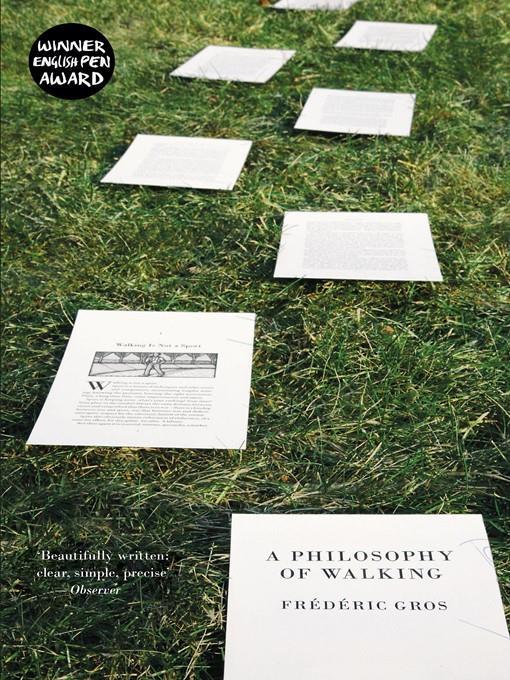
A Philosophy of Walking
کتاب های مرتبط
- اطلاعات
- نقد و بررسی
- دیدگاه کاربران
نقد و بررسی

January 27, 2014
In this meditation on the mental pleasures and requirements of walking, French philosopher Gros (Michel Foucault) focuses on long walks among nature, where even if “fog shrouds the mountains or rain starts to fall in sheets,” the walker must forge ahead. On such journeys, one throws “off the yoke of routine,” leaving the confines of the office for the freedom of the road, where creativity can ferment. Such trips call for slowness, allowing “every hour, every minute, every second to breathe, to deepen.” They also require solitude to find one’s basic rhythm, the pattern “that suits you, so well that you don’t tire and can keep it up for ten hours,” although small groups allow for company without the need for disruptive conversation. In between these ruminations are chapters on philosophers, writers, and activists well-known for their walking habits: Nietzsche, whose long walks in the Italian hills helped his crippling headaches; Kant, renowned for his daily five o’clock walk in any weather; Rimbaud, who travelled to Paris several times as a teenager, mainly on foot, then spent his last few years in the desert, “walking towards the sun”; and Gandhi. who spent much of his life walking around India, fighting for independence. This elegant book inspires consideration of an oft-overlooked subject.

May 15, 2014
Nonspecialist readers may at first be intimidated by this work of pedestrian philosophy by Gros (philosophy, Univ. of Paris), which includes discussion of prominent philosophers such as Jean-Jacques Rousseau, Immanuel Kant, and Friedrich Nietzsche. They need not be. The writing and ideas are clear, accessible, and witty and should be approached by anyone with an interest in walking for fun, for leisure, or as a mechanism for creating thinking. Gros mixes personal essays and musings, both short and long, with more serious academic investigations on the influence of walking on some of the most eminent thinkers in history. The subjects are far reaching: from the simple wander in the garden to more intense (and lengthy) pilgrimages. Gros ponders whether walking is a sport (it isn't) and whether it is better to walk together or alone, fast or slow (answer: it depends). VERDICT Despite taking on some weighty philosophers, this is an easy, light read that will delight and inspire anyone who has ever enjoyed a good stroll.--Robert C. Robinson, CUNY
Copyright 2014 Library Journal, LLC Used with permission.

March 1, 2014
Philosopher Gros ponders walking, that most mundane mode of transportation or exercise, elevating it to its rightful place in inspiring creativity, evoking freedom, and quieting a troubled soul. Whether taking a leisurely wandering stroll or a purposeful trek along an assigned path, when walking we are reduced to a moving two-legged beast, momentarily detached from obligations. Beyond his own perambulations, Gros evokes the wanderings of Kerouac and Ginsburg. Nietzsche walked to restore his health and get release from debilitating migraines, until he could walk no more. Rimbaud walked Paris to release his creativity. Nerval walked to ease his melancholy. Rousseau found inspiration only when walking, pondering memories and dreams. And of course, Thoreau walked to commune with nature and meditate. Gros examines the creative philosophies of these writers, artists, and thinkers so deeply influenced by the simple act of walking. He also examines the long journeys, pilgrimages, and protest walks of so many others in this fascinating look at the not-so-simple act of walking.(Reprinted with permission of Booklist, copyright 2014, American Library Association.)

























دیدگاه کاربران